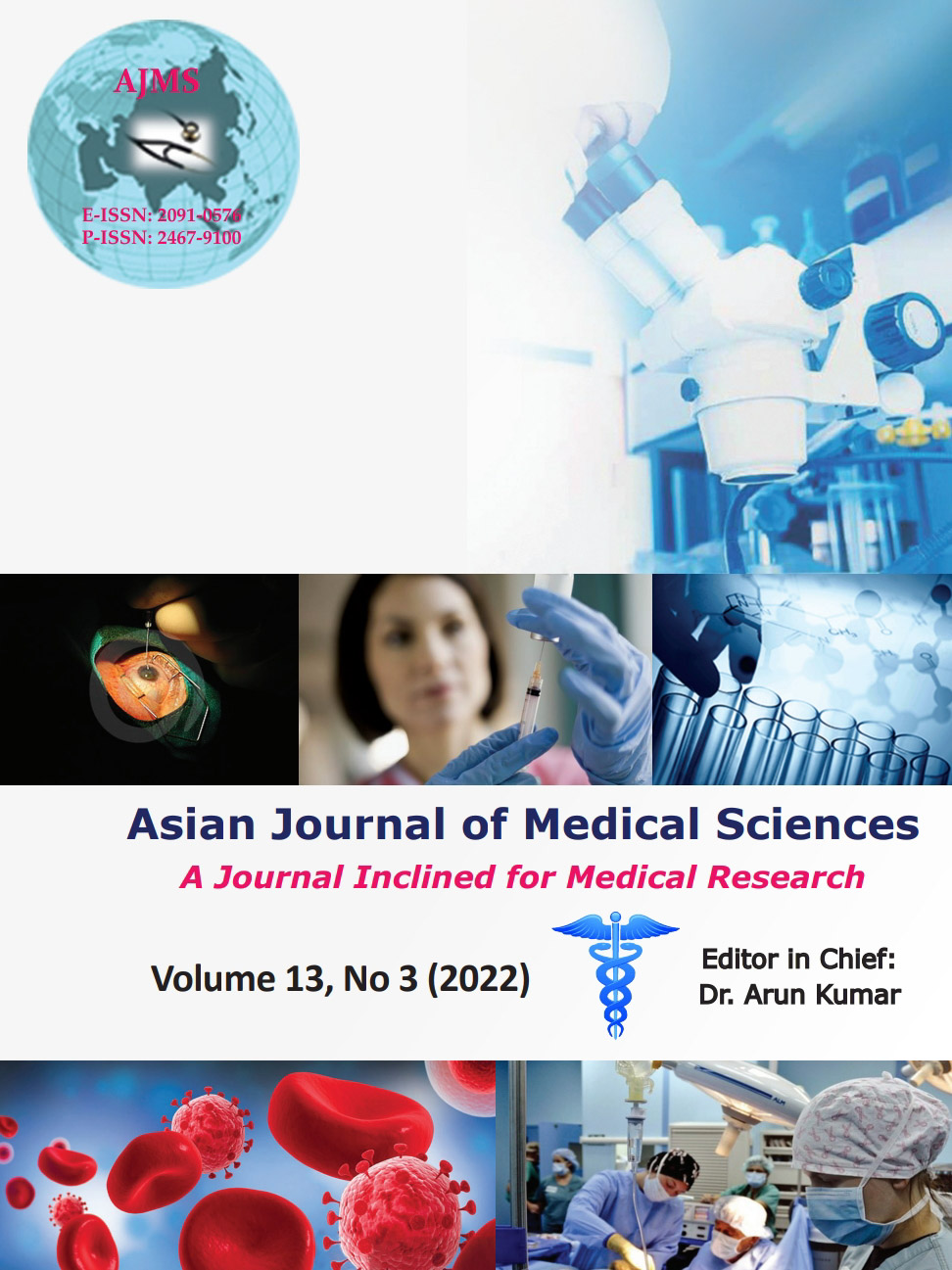Prevalence and determinants of vaccine hesitancy for coronavirus disease 2019 vaccine among healthcare workers of tertiary care center in North India
Keywords:
Coronavirus disease 2019, Healthcare workers, Vaccine hesitancyAbstract
Background: The coronavirus disease 2019 (COVID-19) pandemic has dramatically affected the lives of people worldwide. Countries and citizens are battling with the virus as well as financial losses at the same time. In these gloomy times vaccine against COVID-19 brought some ray of hope. Vaccine hesitancy, however, would not only delay this ongoing pandemic but also even cause huge economic debts on the countries.
Aims and Objectives: The objective of the study was to estimate the prevalence and to determine the reasons behind vaccine hesitancy among healthcare workers (HCWs) at ESIC Medical College and Hospital, Faridabad, Haryana.
Materials and Methods: An institutional-based cross-sectional study was conducted among HCWs registered by government of India for COVID-19 vaccination at tertiary care center. Those who did not turn up on their day of appointment for vaccination were tracked and randomly selected for interview. Data were collected using semi structured questionnaire and was analyzed by Epi info 7.0.
Results: A total of 759 HCWs out of 2029 registered at our center got vaccinated between the study periods. Mean age of participants was 28 years, including 64 (59.8%) men and 43 (40.2%) women. Most of the participants were doctors (31%) followed by medical students. Prevalence of vaccine hesitancy during study period was found to be 62.6%. The most common reason cited by participants for vaccine hesitancy was concern regarding safety and efficacy of COVID-19 vaccine. Multiple factors, including sex, designation, and co-morbidities and whether involved in the direct care of COVID-19 patient, were found to have influence on vaccine hesitancy.
Conclusion: High prevalence of vaccine hesitancy as found in the present study is an alarming sign for a successful vaccination campaign. Developing tailored strategies to address concerns identified in the study are pivotal to decrease vaccine hesitancy among HCWs and thereby in the general population.
Downloads
Downloads
Published
How to Cite
Issue
Section
License
Copyright (c) 2022 Asian Journal of Medical Sciences

This work is licensed under a Creative Commons Attribution-NonCommercial 4.0 International License.
Authors who publish with this journal agree to the following terms:
- The journal holds copyright and publishes the work under a Creative Commons CC-BY-NC license that permits use, distribution and reprduction in any medium, provided the original work is properly cited and is not used for commercial purposes. The journal should be recognised as the original publisher of this work.
- Authors are able to enter into separate, additional contractual arrangements for the non-exclusive distribution of the journal's published version of the work (e.g., post it to an institutional repository or publish it in a book), with an acknowledgement of its initial publication in this journal.
- Authors are permitted and encouraged to post their work online (e.g., in institutional repositories or on their website) prior to and during the submission process, as it can lead to productive exchanges, as well as earlier and greater citation of published work (See The Effect of Open Access).




